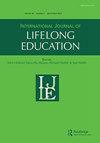评估社区在使用移动电话促进农村发展方面的技术素养
IF 1.9
Q2 EDUCATION & EDUCATIONAL RESEARCH
引用次数: 0
摘要
摘要农村地区社区使用和使用手机是不同国家的一个热门问题。然而,关于农村地区使用手机促进发展和终身学习的实证文献有限。这项研究使用了从农村地区66名手机用户那里收集的数据,报告了他们在使用手机方面的技术素养。数据是通过问卷调查、焦点小组讨论和实际测试生成的。采用描述性统计和专题分析方法对数据进行分析。分析显示,农村社区的大多数成年人只能通过语音通话和短信使用手机。他们中只有少数人可以使用手机访问互联网服务。金融交易和搜索天气、健康、政治和商业信息对他们来说是一项挑战。这导致了这样一个结论,即农村社区需要获得通过手机获得互联网服务的权力,以加强其社会经济发展活动。建议在农村社区实施关于使用手机和互联网的技术扫盲计划,以最大限度地提高生产力,这些社区主要是农民和原材料生产商。本文章由计算机程序翻译,如有差异,请以英文原文为准。
Assessment of the community’s technological literacy in the use of mobile phones for rural development
ABSTRACT Access and use of mobile phones by communities in rural areas is a topical issue in different countries. However, there has been limited empirical literature to account for mobile phone use in rural areas for development and lifelong learning. This study employed the data which were collected from 66 phone users in rural areas to report on their technological literacy in the use of mobile phones. The data were generated through questionnaires, focus group discussions and practical tests. Descriptive statistics and thematic analysis were employed to analyse the data. The analysis revealed that the majority of adults in rural communities could use mobile phones through voice calls and short messages only. Only a few of them could use mobile phones to access internet services. Financial transactions and searching for information on weather, health, politics and businesses were challenging to them. This led to the conclusion that rural communities need to be empowered to access internet services through mobile phones to enhance their socio-economic development activities. It is recommended that technological literacy programmes on the use of mobile phones and the internet to maximise productivity be implemented in rural communities that are mostly farmers and producers of raw materials.
求助全文
通过发布文献求助,成功后即可免费获取论文全文。
去求助
来源期刊

International Journal of Lifelong Education
EDUCATION & EDUCATIONAL RESEARCH-
CiteScore
3.10
自引率
27.80%
发文量
40
期刊介绍:
The International Journal of Lifelong Education provides a forum for debate on the principles and practice of lifelong, adult, continuing, recurrent and initial education and learning, whether in formal, institutional or informal settings. Common themes include social purpose in lifelong education, and sociological, policy and political studies of lifelong education. The journal recognises that research into lifelong learning needs to focus on the relationships between schooling, later learning, active citizenship and personal fulfilment, as well as the relationship between schooling, employability and economic development.
 求助内容:
求助内容: 应助结果提醒方式:
应助结果提醒方式:


